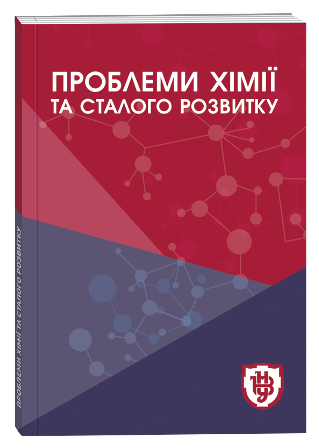ПІСЛЯПРОЄКТНИЙ МОНІТОРИНГ ЯК ОСНОВА ЕКОЛОГІЧНОЇ ОЦІНКИ ЩОДО ЗБЕРЕЖЕННЯ БІОЛОГІЧНОГО РІЗНОМАНІТТЯ В ЛІСОВИХ ЕКОСИСТЕМАХ
DOI:
https://doi.org/10.32782/pcsd-2025-3-9Ключові слова:
лісові екосистеми, збереження біологічного різноманіття, оцінка впливу на довкілля, післяпроєктний моніторинг, лісокористування, екологічне управлінняАнотація
У статті досліджено роль післяпроєктного моніторингу як ключового інструмента оцінки впливу на довкілля в контексті збереження біологічного різноманіття лісових екосистем. Висвітлено правові та організаційні основи запровадження механізмів оцінки впливу на довкілля в Україні, що стали результатом адаптації національного законодавства до вимог Європейського Союзу та міжнародних екологічних угод та розглянуто особливості її застосування у сфері лісового господарства. У статті наведено результати аналізу матеріалів післяпроєктного моніторингу лісових екосистем, які демонструють комплексний характер впливів на компоненти довкілля – атмосферне повітря, водні ресурси, ґрунти, рослинний і тваринний світ. Встановлено, що найбільш вразливим елементом є біологічне різноманіття, оскільки порушення природних трофічних зв’язків, скорочення чисельності рідкісних і зникаючих видів, деградація оселищ і фрагментація біотопів призводять до зниження екологічної стійкості лісів. На прикладі діяльності ДП «Словечанський лісгосп АПК» проведено SWOT-аналіз, що дозволив виявити сильні та слабкі сторони, можливості й загрози ведення лісогосподарської діяльності з урахуванням необхідності збереження біологічного різноманіття. Особлива увага приділена інтеграції результатів післяпроєктного моніторингу у систему екологічного управління, що сприяє прийняттю науково обґрунтованих рішень для збереження екосистем. Практичне значення роботи полягає у виробленні рекомендацій для органів влади, лісогосподарських підприємств і природоохоронних організацій щодо вдосконалення системи післяпроєктного моніторингу, оптимізації лісокористування, розширення природоохоронних територій та посилення взаємодії з місцевими громадами. Перспективи подальших досліджень свідчать про необхідність впровадження геоінформаційних технологій і дистанційного моніторингу для аналізу просторової динаміки біорізноманіття.Таким чином, післяпроєктний моніторинг визначено як ключовий механізм екологічного супроводу лісогосподарської діяльності, що забезпечує не лише контроль, а й адаптивне управління природними ресурсами у відповідності до екологічних вимог ЄС.
Посилання
Конвенція про доступ до інформації, участь громадськості в процесі прийняття рішень та доступ до правосуддя з питань, що стосуються довкілля. URL: https://zakon.rada.gov.ua/laws/show/994_015#Text (дата звернення: 01.08.2025 р.).
Конвенція про оцінку впливу на навколишнє середовище у транскордонному контексті. URL: https://zakon.rada.gov.ua/laws/show/995_272#Text (дата звернення: 01.08.2025 р.).
Закон України «Про оцінку впливу на довкілля». URL: https://zakon.rada.gov.ua/laws/show/2059-19#Text (дата звернення: 01.08.2025 р.).
Єндрошка Є., Алексєєва Є., Скрильніков Д. Оцінка впливу на довкілля та участь громадськості: аналітичний порівняльний огляд європейського й українського законодавства та рекомендації щодо впровадження європейських стандартів в Україні. Львів : ЕПЛ, 2013. 96 с.
Шаравара В. В., Бондаренко О. О., Тарасова О. Г., Гаврилюк Р. Б, Гулевець Д. В., Савченко С. А. Впровадження оцінки впливу на довкілля в Україні: аналіз ризиків і перспектив (громадське бачення). Екологічна безпека та збалансоване ресурсокористування. 2018. №2. С. 94–106. DOI: 10.31471/2415-3184-2018-2(18)-94-106.
Гоштинар С. Л. Правове регулювання екологічної оцінки впливу на довкілля як інституту управління природокористування. Вісник ОНДІСЕ. 2017. Вип. 1. С. 26–35.
Барна І. М. ОВД як механізм забезпечення екологічної безпеки. Наукові записки Тернопільського національного педагогічного університету імені Володимира Гнатюка. Серія : Географія. 2019. № 1. С. 217–225. DOI: https://doi.org/10.25128/2519-4577.19.2.27
Барна І. М. Концепт оцінки впливу на довкілля через призму системного аналізу. Наукові записки Тернопільського національного педагогічного університету імені Володимира Гнатюка. Серія: географія. 2021. №51(2). С. 15–23. https://doi.org/10.25128/2519-4577.21.2.2
Волкова А. О. Правові та організаційні засади оцінки пливу на довкілля. Економіка та право. 2021, № 3. С. 28–36. https://doi.org/10.15407/econlaw.2021.03.028
Єремєєва Н.В. Проблеми правового забезпечення оцінки впливу на довкілля. Економіка та право. 2017. № 1 (46). С. 54–60. https://doi.org/10.15407/econlaw.2017.01.054
Самойленко Ю. Удосконалення системи оцінки впливу на довкілля в контексті екологічного супроводу проектів. Економічний дискурс. 2017. Вип. 3. С. 109–117.
Лісовий кодекс України. URL: https://zakon.rada.gov.ua/laws/show/3852-12 (дата звернення: 01.08.2025 р.).
Постанова «Про врегулювання питань щодо спеціального використання лісових ресурсів». URL: https://zakon.rada.gov.ua/laws/show/761-2007-%D0%BF#Text (дата звернення: 01.08.2025 р.).
Закон України «Про дозвільну систему у сфері господарської діяльності». URL: https://zakon.rada.gov.ua/laws/show/2806-15#Text (дата звернення: 01.08.2025 р.).
Методичні рекомендації з розробки звіту з оцінки впливу на довкілля в галузі лісового господарства. URL: https://eia.menr.gov.ua/upload/files/bakVgo9Va_.pdf (дата звернення: 05.08.2025 р.).
Єдиний реєстр з оцінки впливу на довкілля. URL: https://eco.gov.ua/categories/e-ovd (дата звернення: 15.08.2025 р.).
Звіт за результатами післяпроєктного моніторингу впливу на довкілля (2024 звітний рік) планової діяльності «Спеціальне використання лісових ресурсів у порядку проведення рубок головного користування та суцільних санітарних». URL: https://surl.li/mehhmu (дата звернення: 15.07.2025 р.).
##submission.downloads##
Опубліковано
Як цитувати
Номер
Розділ
Ліцензія

Ця робота ліцензується відповідно до Creative Commons Attribution 4.0 International License.







